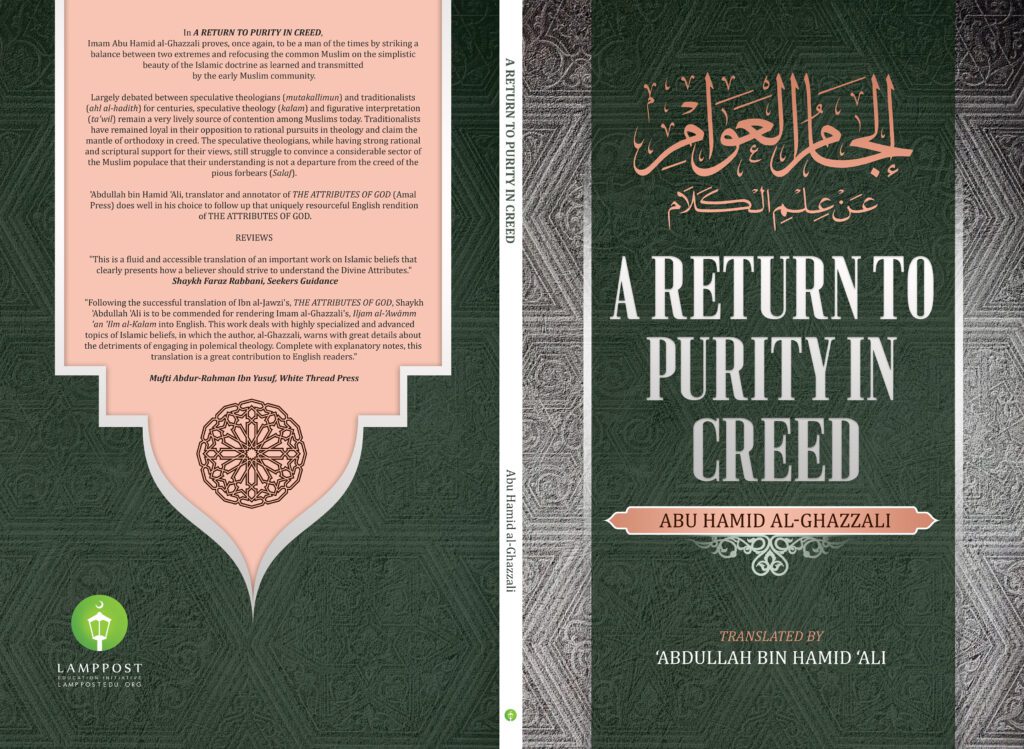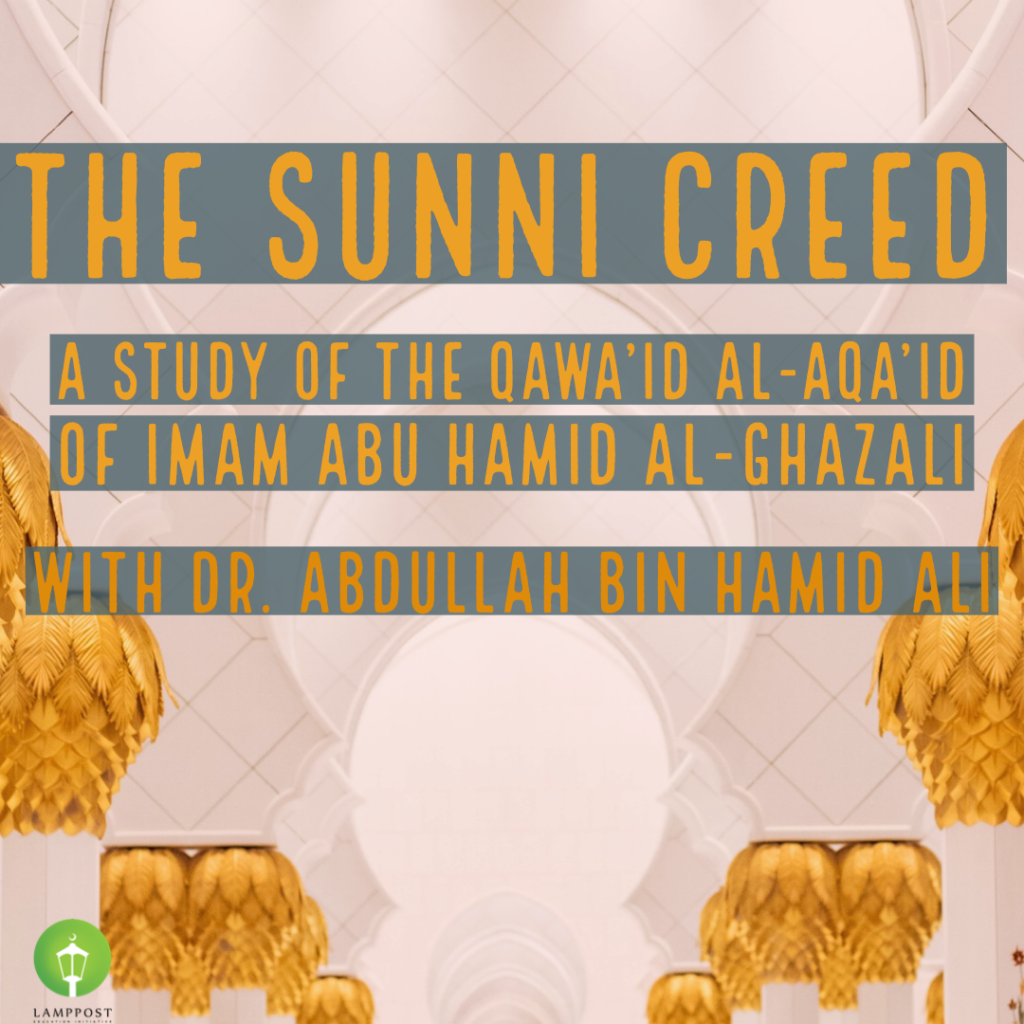"There are four months out the year in which a Muslim must pay closer attention to what he says or does. Sins committed during these months are more serious than the same sins committed outside of these months."
Dr. Abdullah bin Hamid Ali Tweet
In this article, Dr. Abdullah bin Hamid Ali provides a detailed explanation of the Islamic calendar.
The Months and Days of the Islamic Calendar
Allah says, “Verily, the number of months with Allah is 12 months thus ordained by Allah the day He created the Heavens and Earth. From them are 4 that are inviolable. That is the straight way of life. So do not wrong yourselves during them.” {Tawbah: 36}
The Months
Muharram – محرم
The first month of the Islamic year is called Muharram. Muharram means “Inviolable.” That is, it is one of the 4 sacred months within which unprovoked fighting and other sins are emphatically forbidden. It gets its name from it being secure from violation. ‘Alam al-Din Al-Sakhawi says in his book المشهور في أسماء الأيام والشهور , What is Famous about the Names of the Days and Months:
“It was named that because it is an inviolable month.”
Hafiz ibn Kathir says,
“And to me it was named that to emphasize its inviolableness, since the Arabs used to change with it declaring it violable one year and declaring it inviolable for a year.”
Safar – صفر
The second month of the Islamic year is called Safar. Safar means “Emptiness”, the same origin of the number zero, Sifr (صِفر). This month was given this name since the Arabs’ houses would be void of people during this month much as a result of them going out for fighting and on journeys.
Rabi’ al-Awwal – ربيع الاول
The third month of the Islamic calendar is called Rabi’ al-Awwal. Rabi’ al-Awwal means “The First Encampment.” Some translate it as ‘Spring’. It is called that due to the fact that the Arabs used to spend this month as well as the following month in a place other than their customary abodes.
Rabi ’ al-Akhir – ربيع الآخر
The fourth month is known as Rabi al-Akhir. This name means “The Final Encampment,” since the Arabs would return to their customary abodes after the completion of this month. Some translate it as ‘Autumn’.
Jamada al-Ula – جمادى الاولى
The fifth month of the Islamic calendar is known as Jamada al-Ula. This name can be translated as “The First Cold Season.” This month was given this name as a result of the water becoming frozen during the first year that the Arabs gave names to their months. Hafiz Ibn Kathir says,
“It was called that because the water would freeze during it. He (‘Alam al-Din Al-Sakhawi) said: And the months – according to their reckoning – didn’t revolved. And there is a debate about this (statement), because their months were connected with the lunar crescents. So they’d have to revolve. So perhaps they named it that at the first time it was named during the freezing of the water during the cold as the poet said:
“And a night from Jumada possessing moisture – The slave can’t see, in its darkness, the tendon
The dog doesn’t bark more than once – to the point that it wraps, over its snout, the tail.”

A fascinating look at the battles for Jerusalem between Muslims and Christians. Click the link below for details on this exclusive Lamppost online course
Jamada al-Akhirah – جمادى الاخرة
The sixth month of the Islamic calendar is called Jamada al-Akhirah. Jamada al-Akhirah translates to mean “The Final Cold Season.” The origin of its name is the same as Jamada al-Ula.
Rajab – رجب
The seventh month of the Islamic calendar is called Rajab. Rajab can be translated as “Exaltation.” So it can be called “The Month of Exaltation.” It is also the second of the Sacred Months of Islam.
Sha’ban – شعبان
Sha’ban is the eighth month of the Islamic calendar. Sha’ban literally means “Two Peoples.” Its name is taken from the branching off of the different Arab tribes and their splitting up into factions to launch a military attack.
Ramadan – رمضان
Ramadan is the ninth month of the Islamic calendar and is the holy month of Fasting. In it the Prophet – may Allah bless and grant him peace – was visited by the angel for the first time, and the Qur’an was delivered to the House of Might (بيت العزة) in the Lowest Heaven.
The name, Ramadan, literally means “Extreme Heat”, likely because the first Ramadan probably occurred during the hot season. And Allah knows best.
Shawwal -شوّال
The tenth month of the year is called Shawwal. Shauwaal means “Raising or Lifting.” This was the month that the camels used to raise up their tails for the purpose of mating.
Dhu al-Qa’dah -ذوالقعدة
Dhu al-Qa’dah literally means “The Possessor of the Sitting.” It is called that because it was a month in which the Arabs would take a break from fighting and traveling. So it was if they were sitting at home.
This is the eleventh month of the Islamic calendar, and the third of the Inviolable Months of Islam.
Dhu al-Hijjah -ذوالحخّة
The twelfth and last month of the Islamic lunar year is Dhul al-Hijjah. Dhu al-Hijjah means “The Possessor of the Pilgrimage.” This month was given this name, since the people would perform the pilgrimage in it. It is also another one of the Inviolable Months of Islam within which unprovoked aggression and other sins are emphatically forbidden.

Rich and detailed courses covering a wide range of topics. Click below for more details
The Days of the Week
Sunday – is called Yawm al-Ahad (يوم الأحد). It literally means “Day of the One” or “Day One.”
Monday – is called Yawm al-Ithnayn (يوم الاثنين). It means “Day of the Two” or “Day Two.”
Tuesday – is called Yawm al-Thulatha (يوم الثلاثاء). Tuesday is “Day Three.”
Wednesday – is Yawm al-Arbi’a (يوم الأربعاء), “Day Four.”
Thursday – is Yawm al-Khamis (يوم الخميس), “Day Five.”
Friday – is Yawm al-Jumu’ah (يوم الجمعة ), “The Day of the Reunion.”
Saturday – is called Yawm al-Sabt (يوم السبت), “The Day of Severance”, since it is the last day of the week. So it is as if the week has been severed or cut off.
In the far past the Arabs used to name the days of the week as follows:
Sunday – was “Awwal”اول
Monday – was “Ahwan” أهون
Tuesday – was “Jabbar” جبّار
Wednesday – was “Dabbar” دبّار
Thursday – was “Mu’annis” مأنّس
Friday – was “Al-’Urubah” العروبة
And Saturday – was “Shayyar” شيّار
Remember the Inviolable Months
There are four months out the year in which a Muslim must pay closer attention to what he says or does. Sins committed during these months are more serious than the same sins committed outside of these months. These months are:
Muharram
Rajab
Dhu al-Qa’dah
Dhu al-Hijjah
Dr. Abdullah bin Hamid Ali
He holds a Ph.D. in Cultural and Historical Studies in Religion (2016) and an M.A. in Ethics and Social Theory (2012) from the Graduate Theological Union. He obtained his B.A. (ijaza ‘ulya) in Islamic Law  (Shariah) from the prestigious Al-Qarawiyin University of Fes, Morocco in 2001. He served as full time Islamic chaplain at the State Correctional Institute of Chester, PA from 2002-2007, and is the founding director of the Lamppost Education Initiative. He currently serves as an Associate Professor of Islamic law and Prophetic Tradition at Zaytuna College in Berkeley, California. His research interests include the interconnection between law and identity formation, comparative Islamic law, and Islam’s role in the modern world.
(Shariah) from the prestigious Al-Qarawiyin University of Fes, Morocco in 2001. He served as full time Islamic chaplain at the State Correctional Institute of Chester, PA from 2002-2007, and is the founding director of the Lamppost Education Initiative. He currently serves as an Associate Professor of Islamic law and Prophetic Tradition at Zaytuna College in Berkeley, California. His research interests include the interconnection between law and identity formation, comparative Islamic law, and Islam’s role in the modern world.
Click HERE to see more articles, videos, and more from Dr. Abdullah Ali










